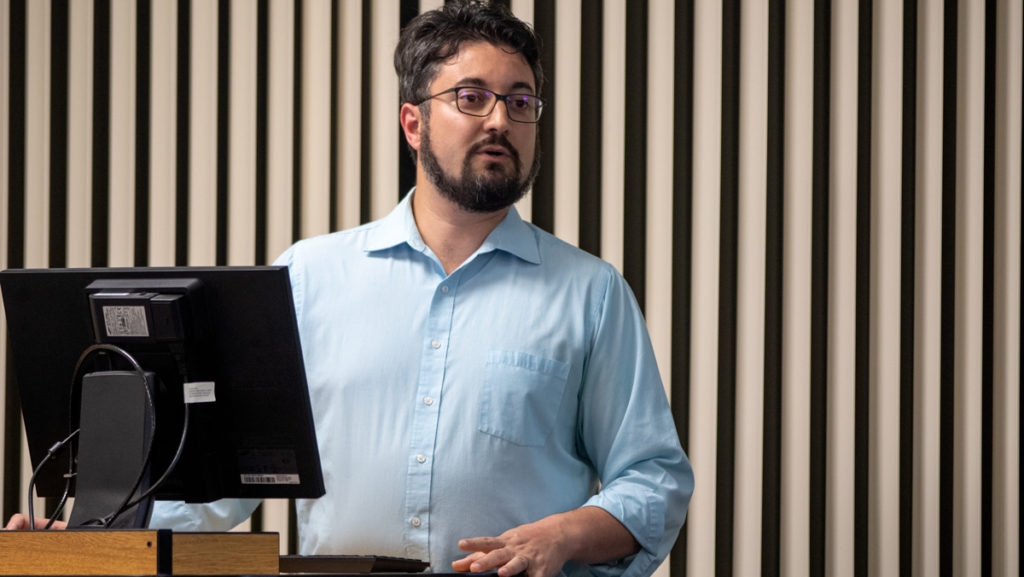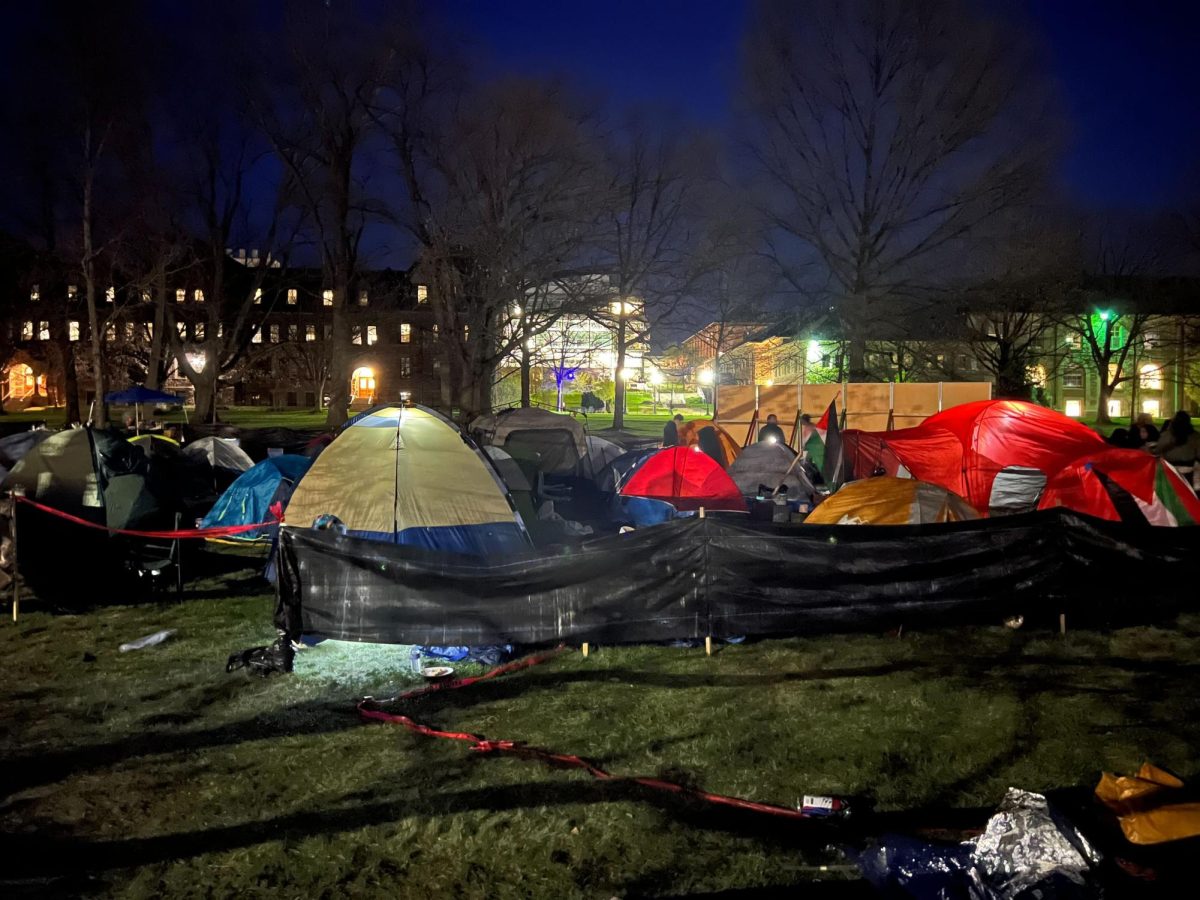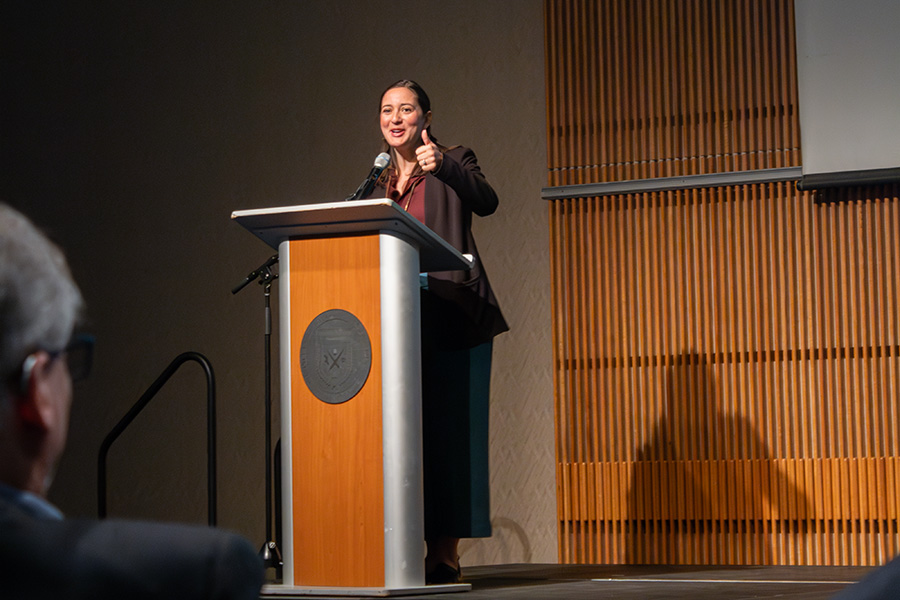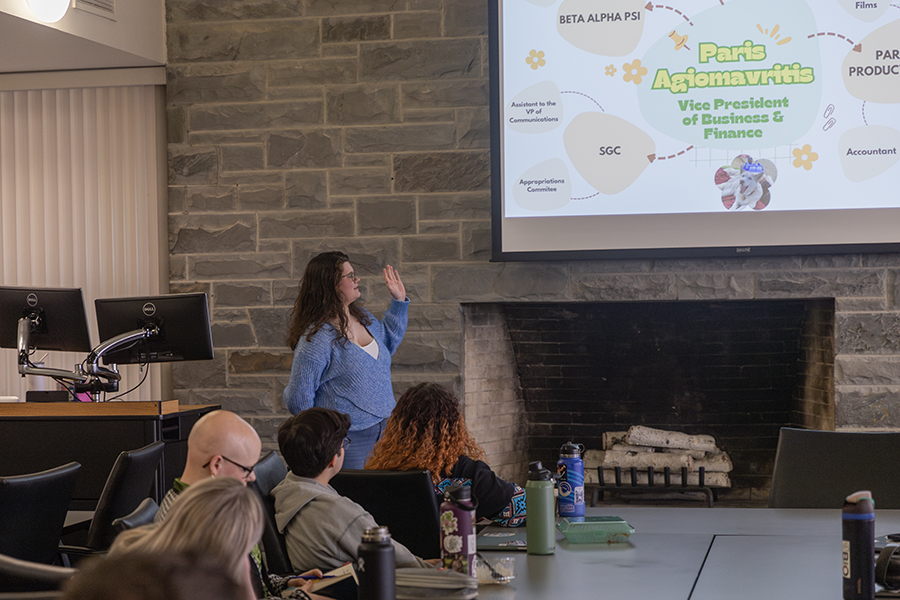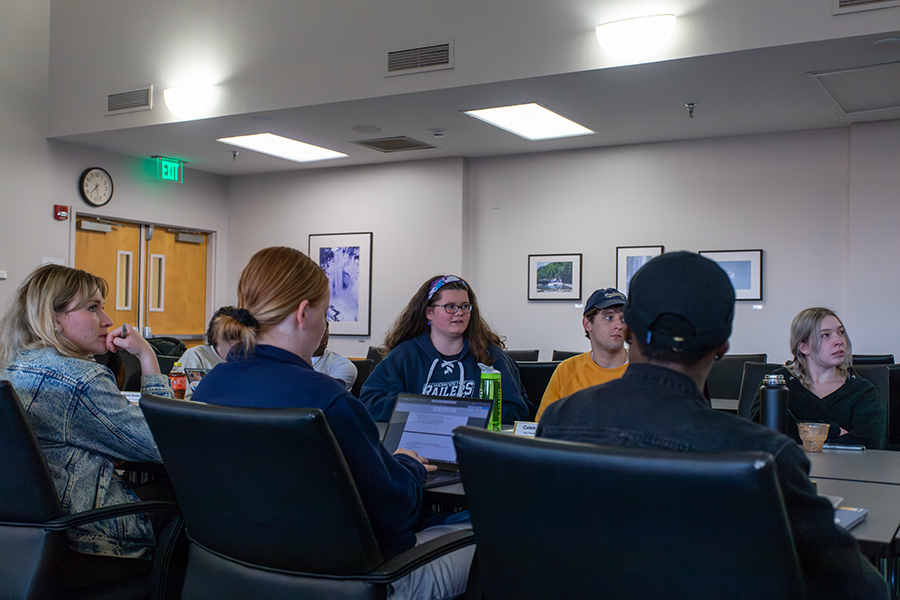Guilherme Costa, vice president, general counsel and secretary to the Ithaca College Board of Trustees, discussed new sexual harassment laws with the Student Governance Council at its Oct. 1 meeting.
Costa, who began working for the college Sept. 10, presented an overview of the two new laws, which are a part of the New York state program, Combating Sexual Harassment in the Workplace. New York Governor Andrew Cuomo signed these laws into the 2019 New York State Budget on April 12.
Costa first discussed section 201-G of Article 7 of the Labor section of the Consolidated Laws of the State of New York, titled Prevention of Sexual Harassment, which is an amendment to the New York Labor Law. This law requires the New York State Department of Labor to create a model sexual harassment prevention policy as well as model sexual harassment prevention training for employers to either adopt as their own or to use as reference while creating their own policy and training, which is now required by the law. It mandates that annual training will occur and that all employees will receive the training. This law goes into effect Oct. 9.
Costa said this may affect student employees, but the law is new and still being finalized, so details such as the definition of an employee may determine whether student employees will need to receive the annual training.
The Department of Labor has provided models of the sexual harassment prevention policy and training on the official website of New York state, which has a specific page titled Combating Sexual Harassment in the Workplace.
Costa said the college already has a sexual harassment policy and training, but he has not read every single policy the college has. He said he is not completely sure that they meet the new standards but has good faith that the college meets these requirements.
“As a result of this law, there are a lot of folks who will be looking at our policies to ensure that we are compliant, and if we’re not, to bring us to compliance,” Costa said.
The new law requires the training to be interactive, which Costa said will require a discussion to determine how interactive the training must be for it to meet the state’s standards.
Senior SGC President Alyse Harris asked Costa if feedback would be allowed during the process of creating and modifying the policy and training.
Costa said he is not in charge of these changes, but he knows input will be taken from anyone who wishes to provide it.
Junior Senator-at-large Vaughn Golden asked who is in charge of addressing the changes because Costa is not.
Costa said human resources and Title IX will be working together to make sure the college’s policy complies with the Labor Law, and if not, will be making the necessary changes.
Costa also discussed a part of the New York Labor Law that addresses sexual harassment related to nonemployees that has been in effect since Sept. 28. The law states that employers cannot allow the sexual harassment of nonemployees in the workplace if they know that it is occurring.
“Whether the victim of the harassment is an employee or not, there are two separate state laws that require that all employers have policies and training in place to prevent harassment,” Costa said. “And then, to ensure that when it becomes aware of it, that it takes appropriate and immediate action.”


